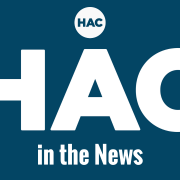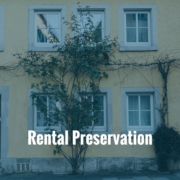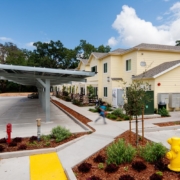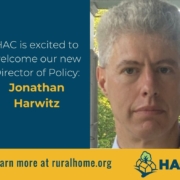Rural Veterans and Local Nonprofits Receive Critical Housing Support in partnership with The Home Depot Foundation
Contacts: AHRV Team, ahrv@ruralhome.org
(202) 842-8600
Washington, DC, June 10, 2024 – Veterans and their families in fourteen rural communities will have better lives, thanks to The Home Depot Foundation and the Housing Assistance Council. The Foundation is awarding grants totaling $472,000 to sixteen local nonprofit housing agencies around the country to preserve housing for veterans in rural America.
The grants are part of The Home Depot Foundation’s mission to provide affordable and accessible housing solutions to U.S. veterans and invest $750 million in veteran causes by 2030. Many veterans and their families face major housing challenges, often exacerbated by issues related to unemployment, age, and service-related disabilities. The Home Depot Foundation and the Housing Assistance Council (HAC) are dedicated to giving back to those who have answered the highest call of service to our nation.
As part of its Affordable Housing for Rural Veterans (AHRV) Initiative, HAC works with The Home Depot Foundation to administer grants that bolster and support the work of rural nonprofit housing agencies to deliver critical housing support to veterans. “The Home Depot Foundation’s enduring partnership and support stands as an important pillar in HAC’s ongoing efforts to bolster and grow the capacity of local rural organizations dedicated to providing and preserving decent, safe, and affordable housing options for veterans across rural America.” said David Lipsetz, HAC’s CEO. As rural America is home to a disproportionately high number of service women and men, HAC remains deeply committed to supporting our nation’s service women and men by uplifting local nonprofits and their work to house veterans and ensure the habitability of their homes and rural communities.
The grantee organizations – described below – provide a range of programs. With the grants, veterans who own homes in California, Georgia, Illinois, Maryland, Michigan, Minnesota, Mississippi, New York, North Carolina, North Dakota, Oregon, South Carolina, South Dakota, and Tennessee will obtain critical repair assistance. Altogether, 101 veterans and their families will benefit from these grants.
About The Home Depot Foundation
The Home Depot Foundation, the nonprofit arm of The Home Depot (NYSE: HD), works to improve the homes and lives of U.S. veterans, support communities impacted by natural disasters and train skilled tradespeople to fill the labor gap. Since 2011, the Foundation has invested more than $500 million in veteran causes and improved more than 60,000 veteran homes and facilities. The Foundation has pledged to invest $750 million in veteran causes by 2030 and $50 million in training the next generation of skilled tradespeople through the Path to Pro program by 2028. To learn more about The Home Depot Foundation visit HomeDepotFoundation.org and follow us on Twitter @HomeDepotFound and on Facebook and Instagram @HomeDepotFoundation.
About the Housing Assistance Council
The Housing Assistance Council (HAC) is a national nonprofit that supports affordable housing efforts throughout rural America. Since 1971, HAC has provided below-market financing for affordable housing and community development, technical assistance and training, research and information, and policy formulation to enable solutions for rural communities.
To learn more about the Housing Assistance Council, visit www.ruralhome.org and follow HAC on LinkedIn, Facebook, Instagram, YouTube, and Twitter @RuralHome.
About the Grantees
- Appalachia Service Project, Johnson City, TN, will utilize $30,000 to provide critical repairs for twenty (20) low-income veterans across rural Central Appalachia. For additional information on Appalachia Service Project, visit their website at https://asphome.org/.
- Chesapeake Health Education Program, Inc., Perryville, MD, will utilize $40,000 to complete repairs on two (2) transitional housing units serving six (6) male veterans in Perry Point, MD. For additional information on Chesapeake Health Education Program, Inc., visit their website at https://www.chepinc.org/.
- GROW South Dakota, Sisseton, SD, will utilize $30,000 to provide critical home repairs for three (3) rural, low-income veterans in Sisseton, SD. For additional information on GROW South Dakota, visit their website at https://www.growsd.org/.
- Habitat for Humanity Menominee River, Kingsford, MI, will utilize $30,000 to assist eight (8) veteran households with critical repairs in rural Iron and Dickinson Counties, MI. For additional information on Habitat for Humanity of Menominee River, visit their website at https://habitatmr.com/.
- Habitat for Humanity of Tulare/Kings Counties, Inc., Visalia, CA, will utilize $30,000 to address critical roof repair and replacement on the homes of three (3) low-income veterans residing in Lemoore, CA. For additional information on Habitat for Humanity of Tulare/Kings Counties, Inc., visit their website at https://www.hfhtkc.org/.
- Habitat for Humanity of York County, Rock Hill, SC, will utilize $30,000 to address four (4) critical home repair projects located in York County, SC. For additional information on Habitat for Humanity of York County, visit their website at https://yorkcountyhabitat.org/.
- Mississippi Center for Police & Sheriffs, Vicksburg, MS, will utilize $30,000 to add an additional homeless, transitional veteran housing unit to its existing “Warriors Cottages” in Vicksburg, MS. For additional information on Mississippi Center for Police & Sheriffs, visit their website at https://m.facebook.com/people/MS-Center-for-Police-and-Sheriffs/100082944142223/.
- NeighborWorks Umpqua, Roseburg, OR, will utilize $30,000 to provide ten (10) veterans with critical home repairs and ductless HVAC units in Coos, Curry, and Douglas Counties, OR. For additional information on NeighborWorks Umpqua, visit their website at https://www.nwumpqua.org/.
- New Foundation Development, Inc., Calhoun, GA, will utilize $30,000 to provide critical repairs and ADA accessibility modifications for three (3) low-income rural veteran homeowners in Resaca and Calhoun, GA. For additional information on New Foundation Development, Inc., visit their website at https://nfdinc.org/.
- Rebuilding Together Fargo Moorhead Area, Fargo, ND, will utilize $30,000 to support the rehabilitation and modification of three (3) veteran owned units in Cass and Richland Counties, ND, and Clay County, MN. For additional information on Rebuilding Together Fargo Moorhead Area, visit their website at https://rebuildingtogetherfma.org/.
- Rebuilding Together Minnesota, Minneapolis, MN, will utilize $30,000 to provide critical repairs and/or accessibility modifications for four (4) low-income veteran homeowners in Cottonwood, Jackson, Murray, and Nobles Counties, MN. For additional information on Rebuilding Together Minnesota, visit their website at https://rtmn.org/.
- Rebuilding Together Saratoga County, Ballston Spa, NY, will utilize $30,000 to provide critical repairs and ADA accessibility modifications for four (4) low-income rural veteran homeowners in rural Warren County, NY. For additional information on Rebuilding Together Saratoga County, visit their website at https://www.rtsaratoga.org/
- Rebuilding Together Southwest Illinois, Edwardsville, IL, will utilize $30,000 to provide wheelchair ramps and related necessary repairs and renovations to at least ten (10) rural owner-occupied homes of disabled veterans in Macoupin and Bond Counties, IL. For additional information on Rebuilding Together Southwest Illinois, visit their website at https://rebuildswi.org/.
- ReFIT-Remodeling for Independence Together, Lake Oswego, OR, will utilize $27,000 to complete critical home repairs and accessibility modifications on eight (8) low-income Veteran owner-occupied homes, with a focus on rural Clackamas County, OR. For additional information on ReFIT-Remodeling for Independence Together, visit their website at https://refitportland.org/.
- Transylvania Habitat for Humanity, Brevard, NC, will utilize $15,000 to provide critical repairs and accessibility modifications for at least four (4) low-income rural veteran homeowners in Transylvania County, NC. For additional information on Transylvania Habitat for Humanity, visit their website at https://transylvaniahabitat.org/.
- WAMY Community Action, Inc., Boone, NC, will utilize $30,000 to provide critical repairs to preserve four (4) low-income rural Veteran owned homes in rural Appalachia. For additional information on WAMY Community Action, Inc., visit their website at https://wamycommunityaction.org/.






